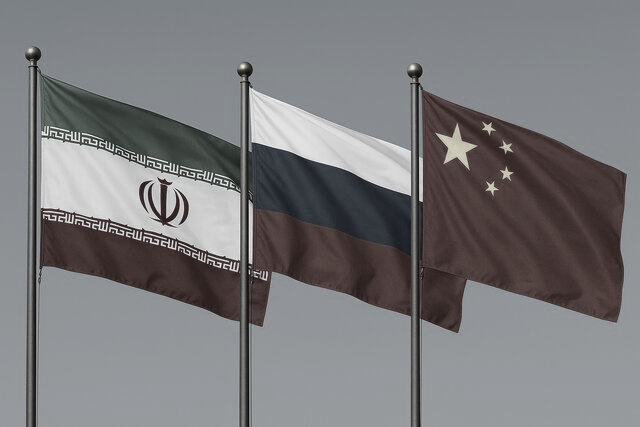
Iran-Russia-China alliance challenges Europe over Iran sanctions
Iran, China, and Russia have jointly informed the United Nations Secretary-General and the UN Security Council (UNSC) that the nuclear deal with Tehran has formally ended, declaring this move “marks the end of the Security Council's consideration of the Iranian nuclear issue,” according to IRNA on Sunday.
The three nations strongly criticized the United Kingdom, France, and Germany, collectively known as the E3, for attempting to invoke the “snapback” mechanism to reinstate previously lifted sanctions under UN Security Council Resolution 2231.
In their joint letter, the three countries argued that the E3 had no legal authority to restore sanctions given their own failure to comply with the 2015 nuclear agreement, the Joint Comprehensive Plan of Action (JCPOA). Iranian state media reported that the letter called the European effort “legally and procedurally flawed,” adding that the E3, “having themselves ceased to perform their commitments under both the JCPOA and Resolution 2231, lack the standing to invoke its provisions.”
The allies also stated that, in accordance with operative paragraph 8 of Resolution 2231, all its provisions are terminated after October 18, 2025. This date, they said, officially marks the conclusion of the Security Council's oversight of Iran's nuclear program.
Iranian Deputy Foreign Minister Kazem Gharibabadi told IRNA on Saturday that five key documents issued by independent nations “clearly and substantively” reject the E3’s “invalid and illegal” attempt to reinstate sanctions under UNSC Resolution 2231.
The JCPOA, signed in 2015 between Iran and the P5+1 group (the US, China, Russia, France, Germany, and the UK), initially suspended nuclear-related sanctions in exchange for restrictions on Tehran’s nuclear activities. The United States withdrew unilaterally from the deal in 2018 and reimposed sanctions.
UNSC Resolution 2231, which remained in effect for 10 years, endorsed the 2015 nuclear agreement and outlined limits on Iran’s nuclear program while lifting associated sanctions.
In their letter, Iran, Russia, and China urged all parties to remain committed to achieving a political settlement through dialogue, mutual respect, and diplomatic engagement, warning against unilateral sanctions, threats, or actions that could escalate tensions.
The letter, addressed to UN Secretary-General Antonio Guterres, was shared publicly in part by Iranian Foreign Minister Abbas Araghchi on his X account. It criticized European allies for yielding to U.S. pressure, abandoning efforts to bring Washington back into the JCPOA, and suspending their own trade with Iran.
The joint statement also dismissed Western allegations of Iranian nuclear activity diversion, noting that the International Atomic Energy Agency (IAEA) has not verified such claims despite conducting the most intrusive inspections to date.
Finally, the allies emphasized that respecting the resolution’s expiration strengthens both the Security Council’s authority and the credibility of multilateral diplomacy.
